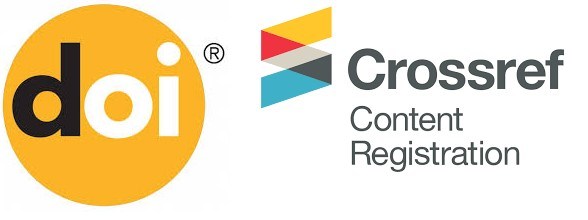As práticas de avaliação dos professores de matemática durante a pandemia
DOI:
https://doi.org/10.46219/rechiem.v15i1.123Palavras-chave:
avaliação formativa e sumativa, valiação para aprendizagem e de aprendizagem, práticas de ensino, salas de aula virtuais, educação à distância, tecnologia educacionalResumo
Este artigo relata os resultados de um estudo exploratório que procura caracterizar as mudanças que professores pertencentes a uma rede de apoio escolar na Região de Valparaíso realizaram no processo de avaliação durante a pandemia da COVID-19, especificamente no primeiro semestre de 2020. Estamos particularmente interessados em avaliações assistidas e não assistidas por tecnologia. Foi realizada uma análise temática para caracterizar as respostas dos professores. Na estrutura conceitual, foram definidas categorias de análise: valor pragmático vs epistêmico das avaliações, avaliação sumativa vs formativa e avaliação para e da aprendizagem. Os resultados mostram uma dicotomia entre a avaliação automática e a avaliação manual, pois enquanto na primeira as vantagens são praticamente apenas pragmáticas, na avaliação manual as vantagens são formativas ou relacionadas com a avaliação da aprendizagem.
Downloads
Referências
Artigue, M. (2002). Learning mathematics in a CAS environment: The genesis of a reflection about instrumentation and the dialectics between technical and conceptual work. International Journal of Computers for Mathematical Learning, 7(3), 245-274. https://doi.org/10.1016/j.compedu.2017.03.012
Attali, Y., y Van der Kleij, F. (2017). Effects of feedback elaboration and feedback timing during computer-based practice in mathematics problem solving. Computers and Education, 110, 154-169. https://doi.org/10.1016/j.compedu.2017.03.012
Bennett, R. E. (2011). Formative assessment: A critical review. Assessment in Education: Principles, Policy and Practice, 18(1), 5-25. https://doi.org/10.1080/0969594X.2010.513678
Berg, C., y Smith, P. (1994). Assessing students’ abilities to construct and interpret line graphs: Disparities between multiple-choice and free-response instruments. Science Education, 78(6), 527-554. https://doi.org/10.1002/sce.3730780602
Black, P. (1993). Formative and summative assessment by teachers. Studies in Science Education, 21(1), 49-97. https://doi.org/10.1080/03057269308560014
Black, P., y Wiliam, D. (2009). Developing the theory of formative assessment. Educational Assessment, Evaluation and Accountability, 21(1), 5-31. https://doi.org/10.1007/s11092-008-9068-5
Bopegedera, A. (2020). Using familiar and new assessment tools in physical chemistry courses during covid-19. Journal of Chemical Education, 97(9), 3260-3264. https://doi.org/10.1021/acs.jchemed.0c00789
Boyatzis, R. (1998). Transforming qualitative information: Thematic analysis and code development. Sage Publications.
Brousseau, G. (1983). Les «effets» du «contrat didactique». 2ème école d’été de didactique des mathématiques.
Cazes, C., y Vandebrouck, F. (2008). Panorama sur les bases d’exercices en ligne. En F. Vandebrouck (Ed.), La classe de mathématiques: activités des élèves et pratiques des enseignants (pp. 183-196). Octarès.
Cornide-Reyes, H., Riquelme, F., Monsalves, D., Noel, R., Cechinel, C., Villarroel, R., Ponce, F., y Munoz, R. (2020). A multimodal real-time feedback platform based on spoken interactions for remote active learning support. Sensors (Switzerland), 20(21), 1-27. https://doi.org/10.3390/s20216337
Fardoun, H., González, C., Collazos, C. A., y Yousef, M. (2020). Estudio exploratorio en Iberoamérica sobre procesos de enseñanza-aprendizaje y propuesta de evaluación en tiempos de pandemia. Education in the Knowledge Society, 21, 1-9. https://doi.org/10.14201/eks.23437
Galicia, L., Balderrama, J., y Navarro, R. (2017). Validez de contenido por juicio de expertos: propuesta de una herramienta virtual. Apertura, 9(2), 42-53. https://doi.org/10.32870/ap.v9n2.993
Gaona, J. (2020). Panorama sobre los sistemas de evaluación automática en línea en matemáticas. Revista Paradigma, 16, 53-81. https://doi.org/10.37618/PARADIGMA.1011-2251.0.p53-80.id853
Gaona, J., Hernández, R., Guevara, F., y Bravo, V. (2022). Influence of a function’s coefficients and feedback of the mathematical work when reading a graph in an online assessment system. International Journal of Emerging Technologies in Learning (IJET), 17(20), 77-98. https://doi.org/10.3991/ijet.v17i20.32641
Gaona, J., López, S., y Montoya-Delgadillo, E. (2022). Prospective mathematics teachers learning complex numbers using technology. International Journal of Mathematical Education in Science and Technology, 1-30. https://doi.org/10.1080/0020739X.2022.2133021
Gaona, J., y Menares, R. (2021). Argumentation of prospective mathematics teachers in fraction tasks mediated by an online assessment system with automatic feedback. Eurasia Journal of Mathematics, Science and Technology Education, 17, 1-18. https://doi.org/10.29333/ejmste/11425
Gaona, J., Reguant, M., Valdivia, I., Vásquez, M., y Sancho-Vinuesa, T. (2018). Feedback by automatic assessment systems used in mathematics homework in the engineering field. Computer Applications in Engineering Education, 26(4), 994-1007. https://doi.org/10.1002/cae.21950
Ginsburg, H., Lee, Y. S., y Pappas, S. (2016). A research-inspired and computer-guided clinical interview for mathematics assessment: introduction, reliability and validity. ZDM - Mathematics Education, 48(7), 1003-1018. https://doi.org/10.1007/s11858-016-0794-8
Hassan, A.-A., y Alqasham, F. (2020). Saudi EFL Learning and Assessment in Times of Covid-19. Asian EFL Journal, 24(43), 356-383.
Hattie, J. (2017). Aprendizaje visible para profesores. Ediciones Paraninfo.
Hattie, J., y Timperley, H. (2007). The Power of Feedback. Review of Educational Research, 77(1), 81-112. https://doi.org/10.3102/003465430298487
Hernández-Sampieri, R., Fernández Collado, C., y Baptista Lucio, P. (2010). Metodología de la investigación (5.a ed.). McGraw-Hill Interamericana México.
Joshi, A., Vinay, M., y Bhaskar, P. (2020). Impact of coronavirus pandemic on the Indian education sector: perspectives of teachers on online teaching and assessments. Interactive Technology and Smart Education, 18(2), 205-226. https://doi.org/10.1108/ITSE-06-2020-0087
Katz, I. R., Bennett, R. E., y Berger, A. E. (2000). Effects of response format on difficulty of SAT-mathematics items: It’s not the strategy. Journal of Educational Measurement, 37(1), 39-57. https://doi.org/10.1111/j.1745-3984.2000.tb01075.x
Martínez, M. (2006). La investigación cualitativa (síntesis conceptual). Revista de Investigación en Psicología, 9(1), 123-146. https://doi.org/10.15381/rinvp.v9i1.4033
Ministerio de Educación de Chile. (2012). Bases Curriculares Educación Básica. https://curriculumnacional.mineduc.cl/614/articles- 22394_bases.pdf
Mladenova, T., Kalmukov, Y., y Valova, I. (2020). Covid 19-A major cause of digital transformation in education or just an evaluation test. TEM Journal, 9(3), 1163-1170. https://doi.org/10.18421/TEM93-42
Nguyen, J. G., Keuseman, K. J., y Humston, J. J. (2020). Minimize online cheating for online assessments during covid-19 pandemic. Journal of Chemical Education, 97(9), 3429-3435. https://doi.org/10.1021/acs.jchemed.0c00790
Olsher, S., Yerushalmy, M., y Chazan, D. (2016). How might the use of technology in formative assessment support changes in mathematics teaching? For the Learning of Mathematics, 36(3), 11-18.
Pacheco-Venegas, N. D., López, G., y Andrade-Aréchiga, M. (2015). Conceptualization, development and implementation of a web-based system for automatic evaluation of mathematical expressions. Computers & Education, 88, 15-28.
Palacios Donoso, M. M. (2020). Presencia de las habilidades del pensamiento matemático en evaluaciones de 4o básico. Investigación en contexto de apropiación curricular. Paulo Freire. Revista de Pedagogía Crítica, 23, 85-107. https://doi.org/10.25074/07195532.23.1638
Sangwin, C., y Jones, I. (2017). Asymmetry in student achievement on multiple-choice and constructed-response items in reversible mathematics processes. Educational Studies in Mathematics, 94(2), 205-222. https://doi.org/10.1007/s10649-016-9725-4
Sepulveda-Escobar, P., y Morrison, A. (2020). Online teaching placement during the COVID-19 pandemic in Chile: challenges and opportunities. European Journal of Teacher Education, 43(4), 587-607. https://doi.org/10.1080/02619768.2020.1820981
Sikurajapathi, I., Henderson, K., & Gwynllyw, R. (2020). Using e-assessment to address mathematical misconceptions in engineering students. International Journal of Information and Education Technology, 10(5), 356-361. https://doi.org/10.18178/ijiet.2020.10.5.1389
Stacey, K., y Wiliam, D. (2013). Technology and assessment in mathematics. En M. A. K. Clements, A. Bishop, C. Keitel, J. Kilpatrick, y F. Leung (Eds.), Third international handbook of mathematics education (pp. 721-751). Springer. https://doi.org/10.1007/978-1-4614-4684-2_23
Wiliam, D. (2009). An integrative summary of the research literature and implications for a new theory of formative assesment. En H. Andrade y G. Cizek (Eds.), Handbook of formative assessment (pp. 18-40). Routledge.
Wiliam, D. (2011). What is assessment for learning? Studies in Educational Evaluation, 37(1), 3-14. https://doi.org/10.1016/j.stueduc.2011.03.001
Downloads
Publicado
Como Citar
Edição
Seção
Licença
Copyright (c) 2023 Revista Chilena de Educación Matemática

Este trabalho está licenciado sob uma licença Creative Commons Attribution 4.0 International License.











